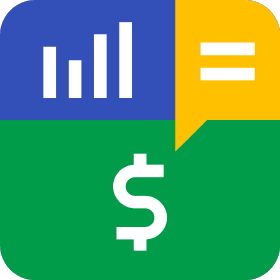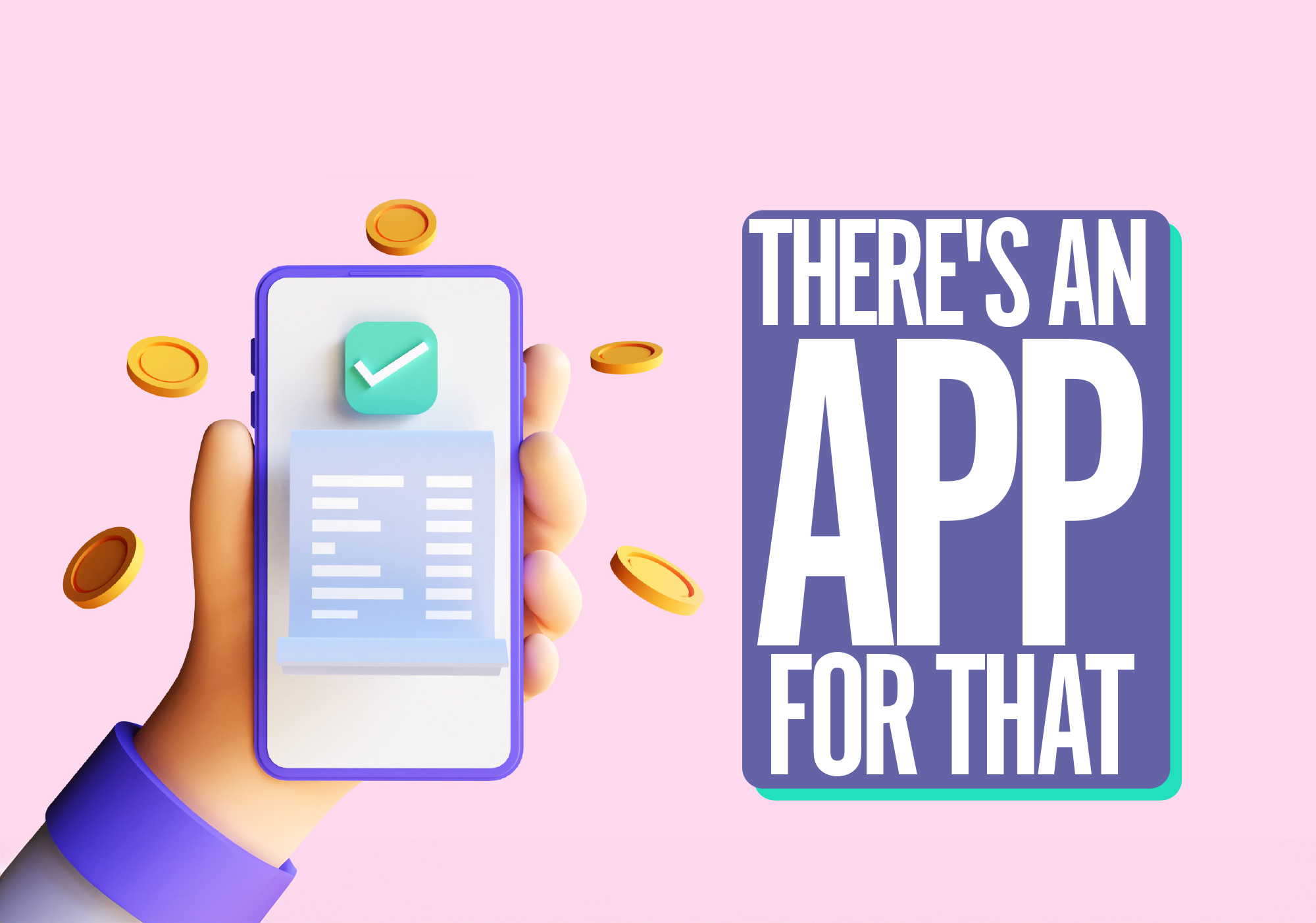By Ava Fleisher
Congratulations on creating a budget (see the previous pages). Now comes the hard part: sticking to it. If you’re the type of person who tracks every penny in Excel and loves it, then there’s nothing to see here. Move on to the next article with a sense of pride that you’re on top of it. But if you’re like the rest of us who find logging and categorizing every cup of coffee quite tedious, then this article is for you.

WallyGPT
Cost: Free
Amidst the rise of AI-powered technology, WallyGPT, commonly referred to as Wally, is the world’s very first personal finance app using artificial intelligence. The free mobile tool allows you to chat with Wally to receive individualized financial advice. From saving for big purchases to setting daily budgets, Wally’s got you covered.
Wally also recommends services, including credit cards and investments, based on your current financial details and even your future financial goals. And if you need reminders to pay upcoming bills, it can also send automated alerts.
What’s more, the app can consistently keep tabs on and organize spending, providing you with categorized budgeting. To do this, connect Wally to any and all of your bank accounts via its network of over 15,000 banks. You can then ask questions like, “How has my spending changed over the last month?” or “In which budgeting category do I spend the most money?” and WallyGPT will respond with advice tailored especially for you.
With this artificial intelligence, of course, come security concerns. According to their website, Wally doesn’t collect or store data, cannot make transfers or charges to your credit card, and never shares, sells or rents your information. The syncing of your bank account to the app is also Payment Card Industry (PCI) compliant, meaning they’re required to follow certain standards that protect credit card information, as well as ISO 27001 certified, which means Wally actively manages any risks to your data. To top it off, the app is General Data Protection Regulation (GDPR) compliant, which essentially acts as an extra layer of protection over your data, giving you more control and awareness over how your data can be used.
Still, there are concerns about some of the functions, such as anonymizing data and comparing it with other users’ information. Even though Wally takes away any identifying information in your spending and/or account, it could still compare your monthly water bills, for example, to other people who use Wally in your state. It’s also important to take Wally’s financial advice with a grain of salt and, like any financial decision, consult multiple sources before taking any major steps.

YNAB (You Need A Budget)
Monthly plan: $14.99/month
Annual plan: $99/year
You Need a Budget uses the envelope system to simplify organizing and spending. You create your categories (i.e., utilities) with existing money in your account and assign dollar amounts to each. If you run out of money in one category, you can add money from another without any guilt. Throughout the month, or period of time you assign to your budget, you can check up on each category or “envelope” to track your spending.
The app is ad-free and contains a multitude of features, including automatic money tracking. By securely connecting the app with your bank, you can budget and set goals that you can easily modify if or when things change. Plus, YNAB’s encouraging slogans, like “You’re on track!” might motivate you to reach weekly, monthly or customized milestones.
Given that debt remains a burden for people everywhere, YNAB also includes a loan planner tool. The app calculates interest and the time you’ll need to pay it off. It provides you with graphs and charts that explain what you’ll need to do to become debt-free.
YNAB also allows for shared subscriptions for significant others, families or any group of no more than six people at a time. In other words, it’s possible to get six subscriptions for the price of one when budgeting together. Each member will still receive their own login and account, but they’ll continue to organize their finances with everyone on the subscription.

Mobills
Basic plan: free
Premium monthly plan: $14.99/month
Premium annual plan: $49.99/year
As you might guess based on their name, Mobills help users manage bills, among other financial needs. Once you input your information, Mobills will create a customized and detailed budget, followed by setting up one-time, pending and repeating transactions.
Mobills’ dashboard gives you a constant, straightforward overview of your spending, hopefully giving you some peace of mind in the financial world. Their visual charts will help you keep track of your personal finance goals and stay on track to reach your necessary milestones.
While Mobills’ baseline services are free, if you wish to manage multiple credit cards, create even more personalized budgets and goals and/or receive email alerts for upcoming payments, then you’ll need to upgrade to the premium version.

Pennies
Cost: One-time fee of $4.99
Pennies is for the on-the-go, simple type who wants to track their finances in a quick and even fun way. The app can connect to an Apple Watch with the Pennies extension, providing financial care at your fingertips (almost literally).
Pennies uses colors to categorize spending into different groups, including fun money, holiday budgets and whatever you may desire. They vow to “do away” with complicated charts and diagrams and instead prefer to display spending history in a singular, clean overview for your convenience, broken up by date and time.
You can create special budgets, depending on when you get paid and what big events may be approaching. Also included are budgeting targets, showing you how what you spent on any given day will affect your financial health at large.
Budgets are made to be extremely flexible, with one-off, weekly, bi-weekly, twice-monthly, monthly and custom options. Reviewers say the app is “beautifully designed” and provides “tons of opportunities for you to mold it to your lifestyle as you wish.”
A final thought
There are other budgeting apps available, but we chose these for their simplicity and versatility. Some provide features for families, like if you’re trying to train your teen to organize their money before leaving the nest, while others help you save for that big trip or party you may be planning. Either way, we found these to be customizable, no matter the goal, and user-friendly.
A formerly popular budgeting app, Mint, also stood as a great option. However, they have recently rolled over into Credit Karma, which, at our deadline, did not offer the same beloved features as Mint. If you’d like to learn what else is out there, a simple search for “budgeting apps” should do the trick.
And don’t forget, with any of these apps, if you choose to buy them, you’ll need to add the cost of your app to your new budget tracker. Maybe those Excel-loving folks really do have the right idea?
This article was published in the January/February 2024 edition of Connect to Northern Westchester

Ava Fleisher
Ava Fleisher is Connect To's star intern and a local high school student. When she’s not writing, you can find her spending time outdoors, reading, or volunteering in her community. When she grows up, she would like to pursue a career in journalism and travel the world.










